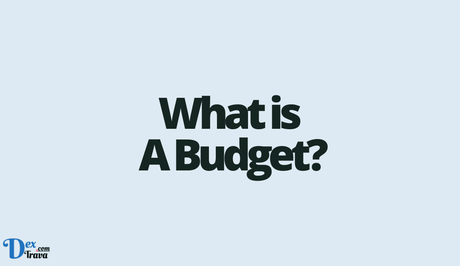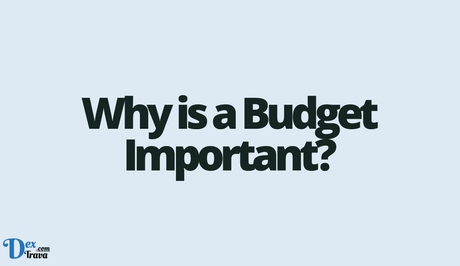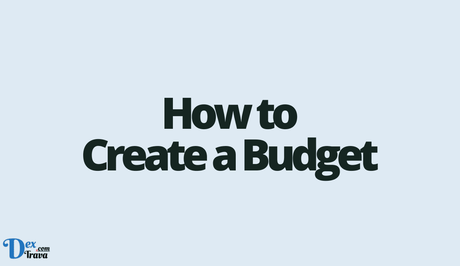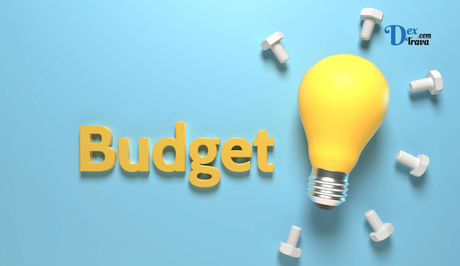In the world of personal finance, a budget is one of the most fundamental and important tools that you can use to manage your money effectively. Whether you are saving for a down payment on a house or trying to pay off debt, creating a budget can help you take control of your finances. However, despite its importance, many people do not fully understand what a budget is, how it works, or how to create and use one. In this article, we will discuss how to create a budget that works for you.
What is a Budget?

At its simplest, a budget is a plan for your money. It is a detailed breakdown of your income, expenses, and savings goals over a certain period of time, typically a month or a year. A budget allows you to track where your money is coming from and where it is going and helps you to make informed decisions about how to allocate your resources.
Also, See:
- 5 Things to Consider When Buying A New Smartphone
- What are The 5 Main Differences Between Saving and Investing?
A budget typically consists of several key components, including:
- Income: This is the money that you receive, such as your salary, wages, or income from investments.
- Expenses: These are the costs associated with your daily living, such as rent or mortgage payments, utilities, groceries, transportation, and entertainment.
- Savings: This is the portion of your income that you set aside for future use, such as an emergency fund or a retirement account.
Why is a Budget Important?

A budget is important for several reasons:
-
Control your spending
To track your spending, a budget can help you to identify areas where you may be overspending or wasting money.
-
Plan for the future
A budget allows you to set and achieve savings goals, such as building an emergency fund or saving for a down payment on a house.
-
Reduce debt
A budget can help you to pay off debt more quickly by identifying areas where you can cut back on expenses and redirect that money toward debt repayment.
-
Improve your credit score
By paying your bills on time and reducing your debt, a budget can help you to improve your credit score, which can lead to lower interest rates on loans and credit cards.
-
Helps You Reach Your Financial Goals
Budgeting helps you track your income and expenses, giving you a clear picture of your financial situation. With a budget, you can identify areas where you need to cut back on expenses, save more money, and invest in your financial goals, such as buying a house, starting a business, or saving for retirement.
-
Helps You Make Better Financial Decisions
When you have a budget, you have a clear understanding of your financial situation, which allows you to make better financial decisions. You can evaluate your spending habits and adjust your budget to align with your financial goals and priorities.
How to Create a Budget

Creating a budget can seem overwhelming at first, but it is actually a relatively simple process. Here are the steps to create a budget:
Step 1: Determine Your Income
The first step in creating a budget is to determine your income. Your income includes all the money you earn each month, including your salary, tips, and any other sources of income. If you have a steady income, this step is relatively easy. However, if your income fluctuates from month to month, you may need to calculate an average based on your income from the past few months.
Step 2: Track Your Expenses
The next step in creating a budget is to track your expenses. This involves keeping track of all the money you spend each month, including fixed expenses like rent and utilities, as well as variable expenses like groceries and entertainment. You can track your expenses using a spreadsheet, a budgeting app, or a pen and paper. The important thing is to be consistent and record all your expenses.
Step 3: Categorize Your Expenses
Once you have tracked your expenses for a month, it is time to categorize them. This involves grouping your expenses into categories like housing, transportation, food, entertainment, and debt payments. Categorizing your expenses will help you see where your money is going and identify areas where you may be overspending.
Step 4: Set Financial Goals
The next step in creating a budget is to set financial goals. Financial goals can help you stay motivated and focused on your budget. Your financial goals may include saving for a down payment on a house, paying off debt, or building an emergency fund. When setting financial goals, it is important to make them specific, measurable, achievable, relevant, and time-bound (SMART).
Step 5: Create a Budget
Now that you have determined your income, track your expenses, categorized your expenses, and set financial goals, it is time to create a budget. Your budget should be based on your income and expenses and should take into account your financial goals. Start by allocating your income to your different expense categories. Make sure to prioritize your expenses and allocate money towards your financial goals. If you find that you do not have enough money to cover all your expenses, you may need to adjust your budget or look for ways to increase your income.
Step 6: Monitor Your Budget
Creating a budget is only the first step. To make your budget work, you need to monitor it regularly. This involves tracking your expenses, comparing them to your budget, and making adjustments as needed. You may find that you need to cut back on certain expenses or adjust your budget to account for unexpected expenses.

Conclusion
Creating a budget can be a challenging task, but it is an essential skill that can help you achieve your financial goals. By following the steps outlined in this article, you can create a budget that works for you. Remember to track your expenses, categorize your expenses, set financial goals, and monitor your budget regularly. With a little effort and discipline, you can take control of your finances and achieve your financial goals.
If you find our post on how to create and use a budget helpful, please share it with friends.
Similar posts:
- How to Invest in Stocks for Beginners with Little Money
- How to Invest in Stocks and Make Money Online for Beginners
- 11 Ways to Save Money Fast on a Low Income
- Debt Consolidation, Management, Settlement, Bankruptcy: Which is best?
- What are The 5 Main Differences Between Saving and Investing?
